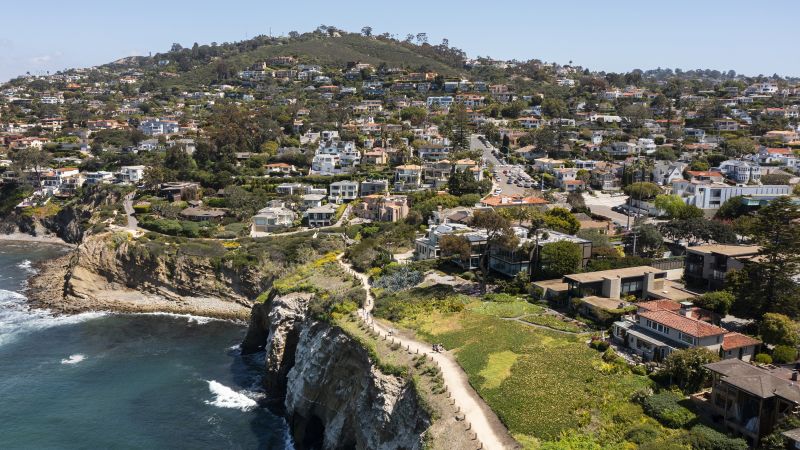The number of US cities where first-time homebuyers are faced with at least a $1 million price tag on the average entry-level home has nearly tripled in the past five years, according to new research.
A Thursday report from Zillow indicates that a typical starter home is now worth $1 million or more in 237 cities, up from 84 cities in 2019, underscoring America’s ongoing home affordability crisis.
“Affordability has been strained across the board,” Orphe Divounguy, a senior economist at Zillow, said. “We see the largest number of million-dollar starter homes in expensive coastal markets. We see them in markets with very low homeownership rates and we see them in markets with more building regulations.”



Yep. I’m about as smack-in-the-middle as you can get and our home has doubled in value since 2016.
I bought my house a year ago and its estimated value has gone up 50% since then (and the estimate isn’t even aware of all the renovations I’ve been doing). It’s meaningless since I bought it for cash and I’m not going to sell it (mainly because I then wouldn’t be able to find any other house to live in for a reasonable price), but it’s kind of nice to know personally even if it is a symptom of an ongoing social calamity.
don’t your taxes go up if you valutation goes up? I personally want housing in general to just keep up with inflation so I can buy and sell as needed and basically have it hold the value I put into it. If it goes up faster then I might get priced out. Slower and I will lose what I put in.
Not really where I live, anyway. Here, the total tax burden is determined and then the relative burdens are apportioned to individual homes based on their relative values. My home’s value went up because everything in this township went up by about that percentage. It is an incentive against improving your property, though, since if your house’s valuation increases relative to other homes, you will get hit with a bigger share of the total tax burden.
My township has an additional issue: the local school district is allowed to collect whatever total amount of money they want each year, not subject to approval by the council (and the school tax by far makes up most of the total tax burden). The only thing preventing them from raising the school tax to absurd amounts is that the school board is re-elected every year and too much school tax would get them voted out (most of them get voted out every year anyway, largely because of the school tax as it already stands). I’m not bothered by it because our schools are among the best in the state, and are the primary reason houses here are in such great demand. As a school bus driver, it’s also what pays my own salary.
Even then. If housing goes up faster than inflation and this is especially bad if its faster than your pay, then if you want to buy a place down the line and then sell your current place. Its going to be harder to swing or impossible.
Lol my pay goes up 2.8% per year and the Teamsters act like they won us a victory with that.
thats not bad if its been consistantly that high going back awhile